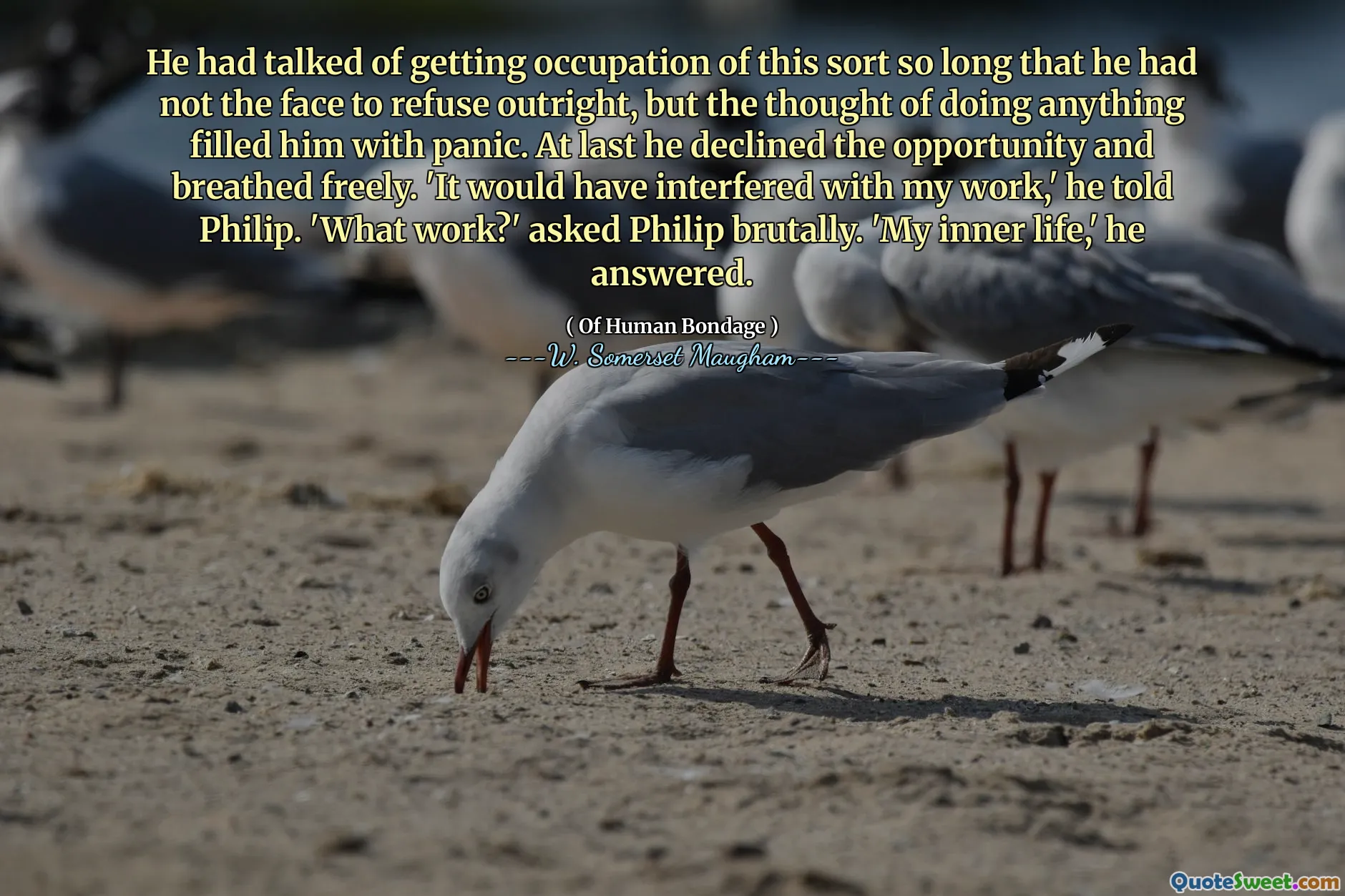
He had talked of getting occupation of this sort so long that he had not the face to refuse outright, but the thought of doing anything filled him with panic. At last he declined the opportunity and breathed freely. 'It would have interfered with my work,' he told Philip. 'What work?' asked Philip brutally. 'My inner life,' he answered.
This quote from W. Somerset Maugham's Of Human Bondage captures a profound moment of personal conflict and self-reflection. The speaker faces an internal battle between social expectations and their own emotional or spiritual needs. The idea of taking up an occupation is met simultaneously with a social pressure to accept and a deep internal panic about committing to something that might disrupt their personal growth. This panic highlights how intimately connected our external actions are with our sense of self and inner equilibrium.
The refusal not because of the nature of the work but because it "would have interfered with my work," referring ironically and profoundly to "my inner life," emphasizes the inner life’s priority over outward activity. It suggests that sometimes, the most important work is not visible or recognized by society but is the continuous, often invisible, work of shaping one’s inner world.
Philip's brutal questioning underscores societal impatience with introspection and the preference for outward achievements. This tension between doing external work and inward work resonates broadly, particularly in moments where individuals must choose between conforming to external demands and nurturing personal development or mental health.
In essence, this quote poignantly articulates a universal human experience—balancing the external demands and the often neglected but essential inner life. It invites readers to honor and protect their inner life, which sustains and shapes everything else in their existence.





